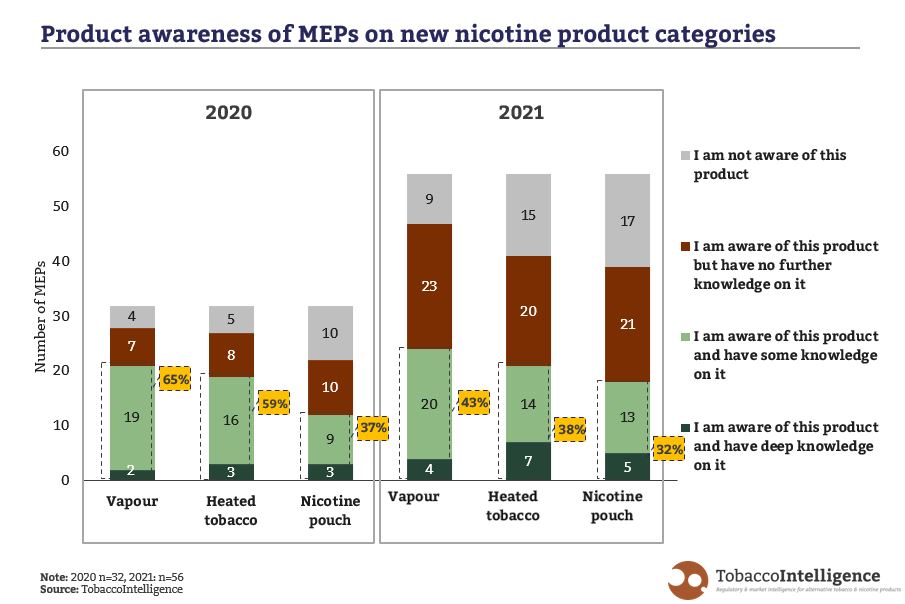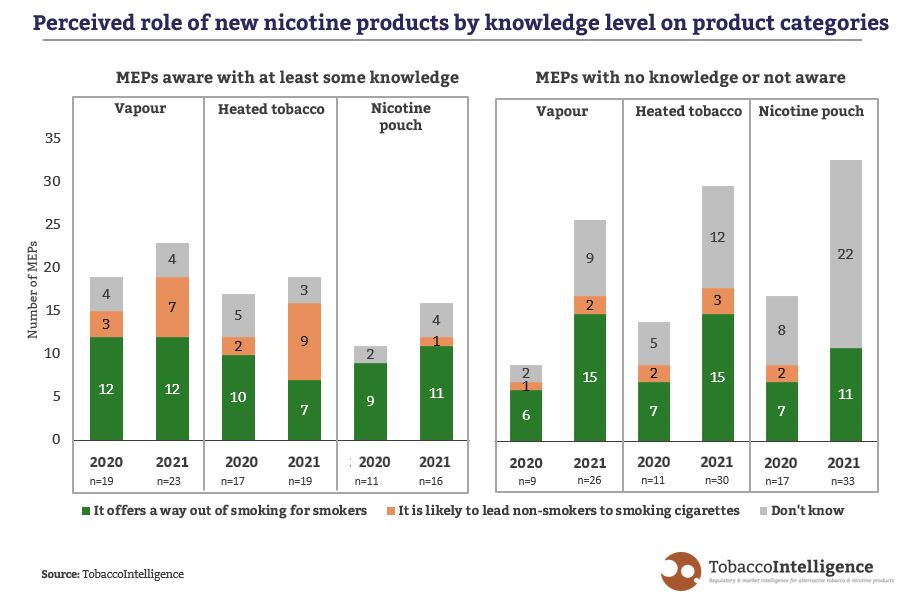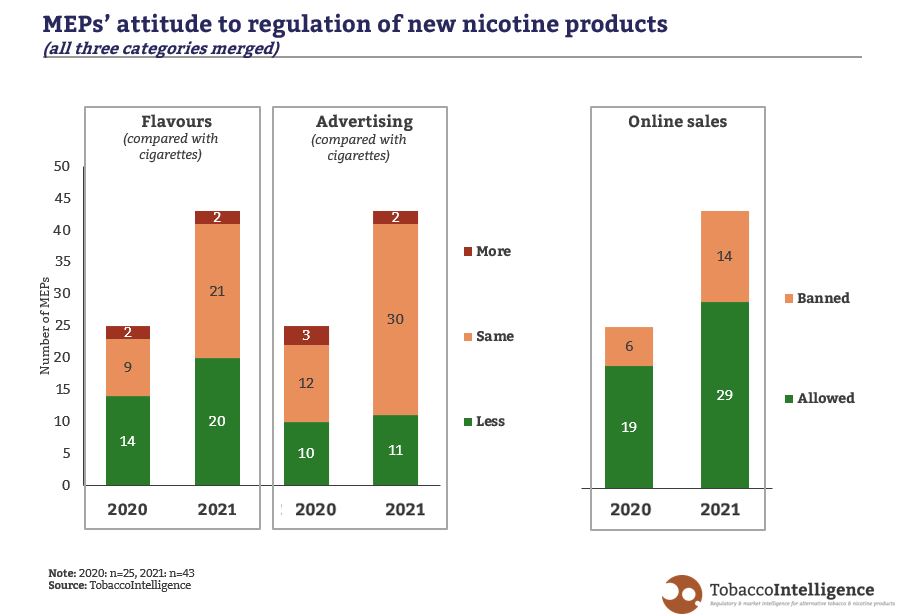
Contents
Introduction
Members of the European Parliament (MEPs) are due to vote on amendments to a report on Beating Cancer presented by the Special Committee on Beating Cancer (BECA) on 6th December 2021 which may set policy direction for the European Union over many years. Among the many areas in which the BECA has been active – including food, alcohol, and chemical materials – tobacco is one of the most important as it is identified as one of the areas which can contribute most significantly to reducing cancer rates. Within this, one of the main topics for debate will be the role played by new nicotine products and how their sale and use should be regulated.
As an independent data service for the sector, we carried out a second survey of MEPs following a similar survey carried out at the end of 2020 to find out how their views on new nicotine products, namely e-cigarettes (vaping), heated tobacco and nicotine pouches, have changed. Our survey was carried out online and anonymously using the same methodology and questions as last year allowing us to compare the results. All the data obtained remains confidential other than in consolidated analysis. The survey was sent to all MEPs (from all member states and political parties) and responses were obtained from over 50 MEPs, representing 8% of the European Parliament (an improvement compared to the 2020 survey). This is a summary of the most interesting results.
Summary of key findings
- A higher response rate to our survey this year might suggest a higher level of interest in the topic of tobacco and new nicotine products among MEPs in the lead up to the BECA vote.
- The increased sample size has led to levels of knowledge about new nicotine products declining compared with last year, confirming that average levels of knowledge of these products by MEPs are low; knowledge has remained highest for vape, followed by heated tobacco and then nicotine pouch.
- Views on risk are linked to levels of knowledge, with those MEPs with knowledge of the products predominantly likely to consider the products less risky than smoking; however, this has declined compared with the results from 2020 in all categories apart from nicotine pouch, which MEPs are now mostly likely to consider less harmful than smoking.
- Those MEPs with no knowledge of the products are more likely to have no view of the risk profile compared with last year, suggesting fewer fixed opinions among this group.
- Among MEPs with some knowledge of the products, a majority still consider the products are likely to help existing smokers quit, but this has declined compared with 2020, particularly for heated tobacco.
- MEPs still have differing attitudes towards regulation of new nicotine products, with over two-thirds believing that online sales should be allowed, while half or more consider flavours or advertising restrictions should be the same or more strictly regulated compared with cigarettes.
Awareness and knowledge of new nicotine products
MEPs have differing levels of knowledge of the different types of new nicotine products, with vaping being the most understood and nicotine pouches the least.
An increased sample size this year may be more representative of the European Parliament compared with last year and suggest knowledge levels of these products are low; more than a third of MEPs have no knowledge of any type of new nicotine product, and over one in ten are not even aware of any of them.
Assessment of risk
No MEPs now consider the products to be completely harmless, but around half or more still consider them to be less harmful compared with smoking.
Although fewer MEPs believe new nicotine products are less harmful than smoking compared with last year, many more are undecided about the risk profile.
A third of MEPs have not decided whether or not nicotine pouches are more harmful than smoking.
Does knowledge of these products influence MEPs’ attitudes?
MEPs with some knowledge about these products are very likely to consider them less risky than smoking; this has declined compared with 2020 for vapour and heated tobacco but increased for nicotine pouches.
MEPs with no knowledge are more likely to consider the products the same or more harmful than smoking, but more are undecided on the matter compared with last year.
While more MEPs with knowledge consider nicotine pouches to be less harmful than smoking compared with 2020, fewer MEPs with no knowledge think that compared with last year.
Will new nicotine products help smokers quit or encourage people to start smoking?
Fewer MEPs with knowledge feel that new nicotine products are likely to help existing smokers quit than in 2020.
A much larger proportion than last year (nearly half) of MEPs with knowledge of new nicotine products believe heated tobacco is likely to lead non-smokers into cigarette smoking.
Many more MEPs with no knowledge are undecided about whether new nicotine products help smokers quit or encourage people to start smoking, with over two-thirds undecided about nicotine pouches.
How should new nicotine products be regulated?
MEPs have continued to have differing views on the regulation of new nicotine products, with over three-quarters believing online sales should be allowed.
More MEPs than last year believe new nicotine products should be regulated the same or more restrictively than cigarettes in terms of flavours or advertising.
Nearly half of MEPs believe flavour restrictions for new nicotine products should be less than for cigarettes.
If you would like to know more, our researchers would be very pleased to provide further information on these findings, or on the regulation of these new products and the market for them.
– TobaccoIntelligence staff
Photo: European Parliament












